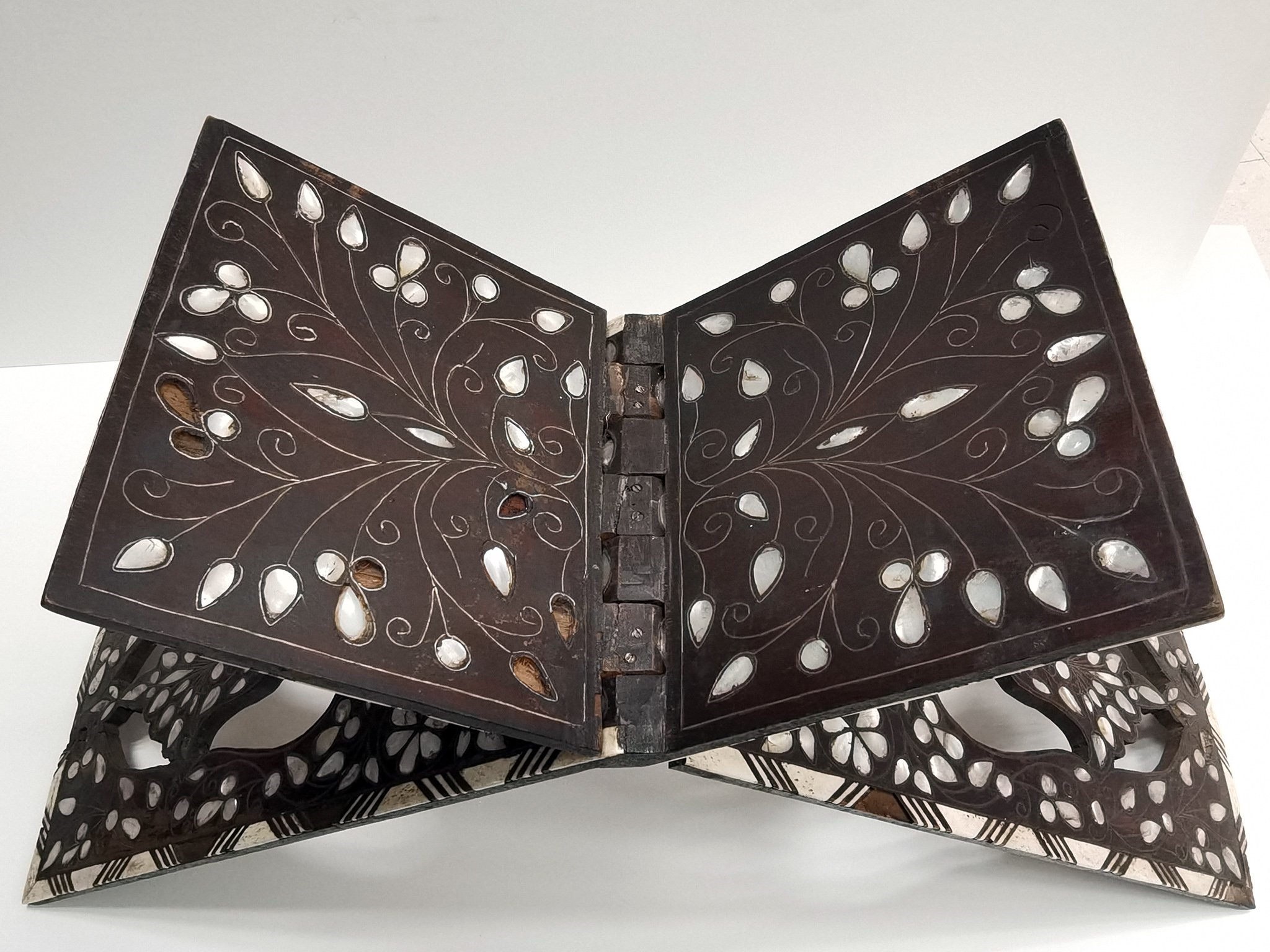
10:
THE CULTURE OF THE BOOK AND THE TRADITION OF LITERATURE
-

THE CULTURE OF THE BOOK IN BOSNIA
Upon its arrival in Bosnia, Islamic civilization had an eight-century long tradition of a favorable attitude toward the book and its production.
-
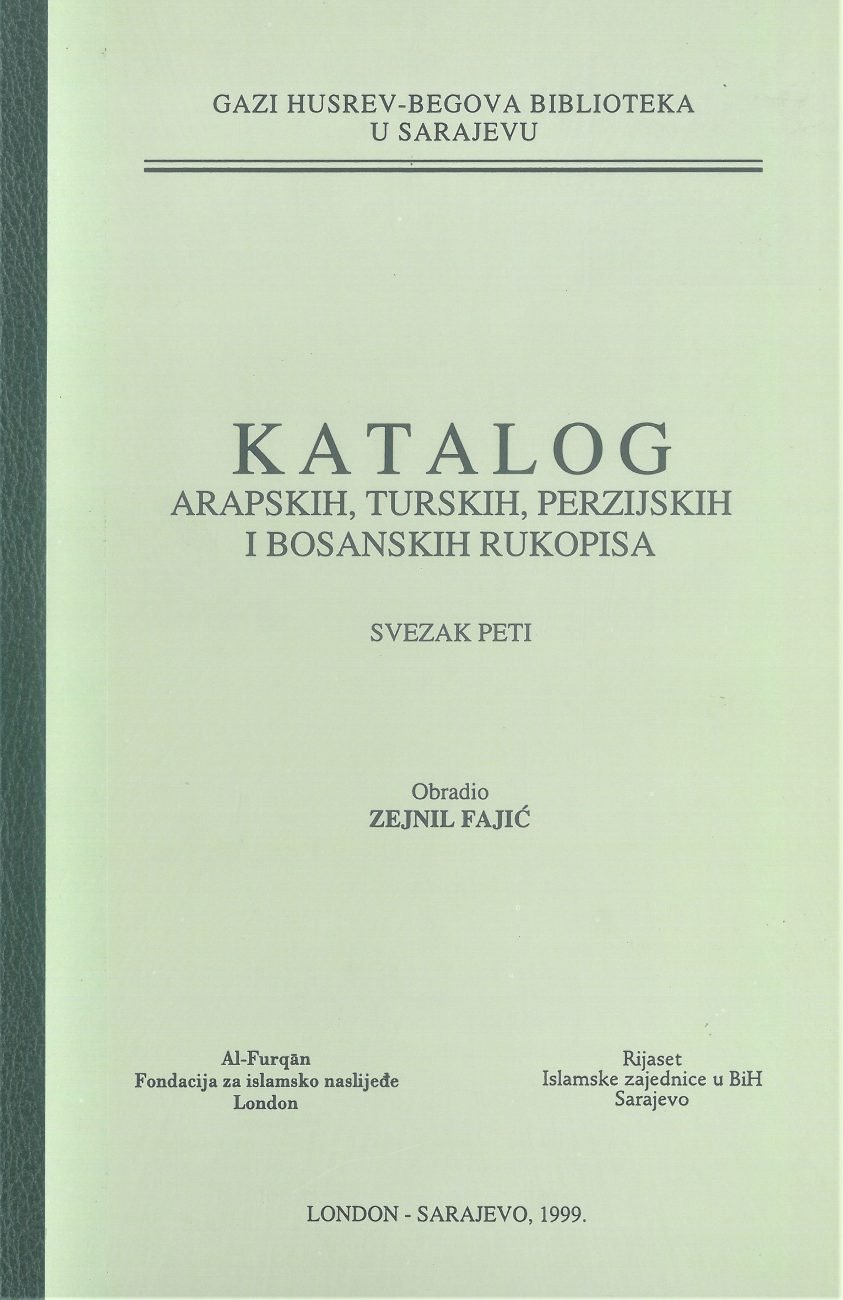
A TRANSCRIBER OF QURʼAN FROM SARAJEVO IN 1764
Bosnian women used to transcribe the Quran.
-

TRANSCRIPTION OF THE QUR'AN FROM THE XIV CENTURY
Karađoz beg mosque in Mostar.
-

BOSNIAN LITERATURE IN PERSIAN
Upon the entry of Bosnia and Herzegovina into the Ottoman Empire, literary norms and standards which applied and prevailed in other parts of the Empire were transferred to these regions.
-

LIBRARY OF OSMAN-EF. ŠEHDI BJELOPOLJAC IN SARAJEVO
In Islamic civilization, we often encounter buildings raised as a sign of memory of parents, children or some other familiar or related persons.
-

SARAJEVO MUSHAF TRANSCRIBED BY AHMAD RIFQI ŠEHOVIĆ IN 1748
The holding of manuscripts in the Oriental Institute, previously one of important repositories with over five thousand hand-written codices, presently stores somewhat fewer than a hundred.
-

ABDULVEHAB ILHAMIJA: A FAMOUS BOSNIAN POET, REBEL AND EVLIJA (A RIGHTEOUS PERSON)
One of the probably best-known Bosnian Aljamiado literature authors is Abdulvehab Ilhamija (1773-1821).
-
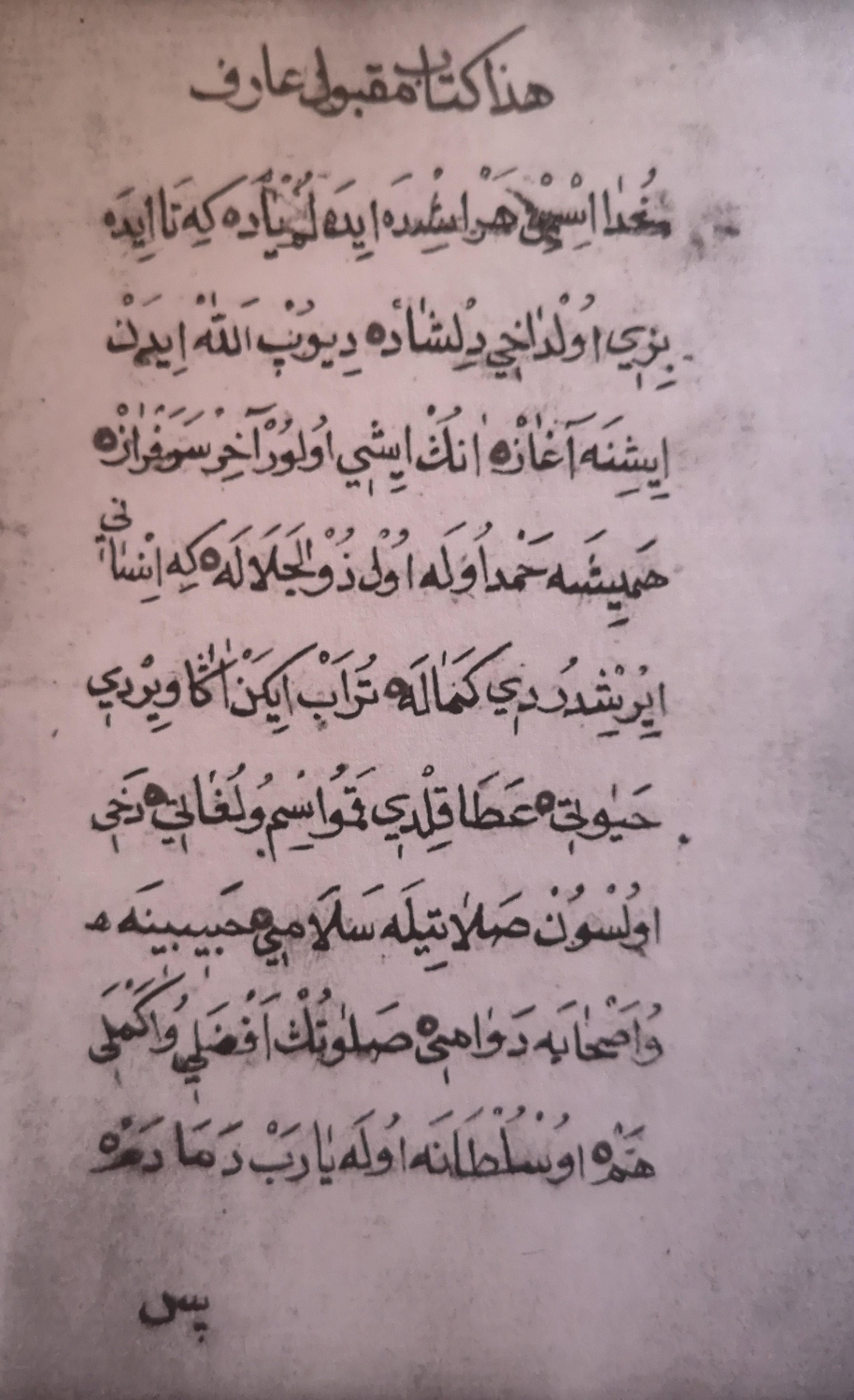
MUHAMED HEVAI USKUFI BOSNEVI - THE FIRST BOSNIAN LEXICOGRAPHER
Muhamed Hevai Uskufi Bosnevi is a bright name of Bosnian Culture: our history, science, theology, poetry and lexicography.
-
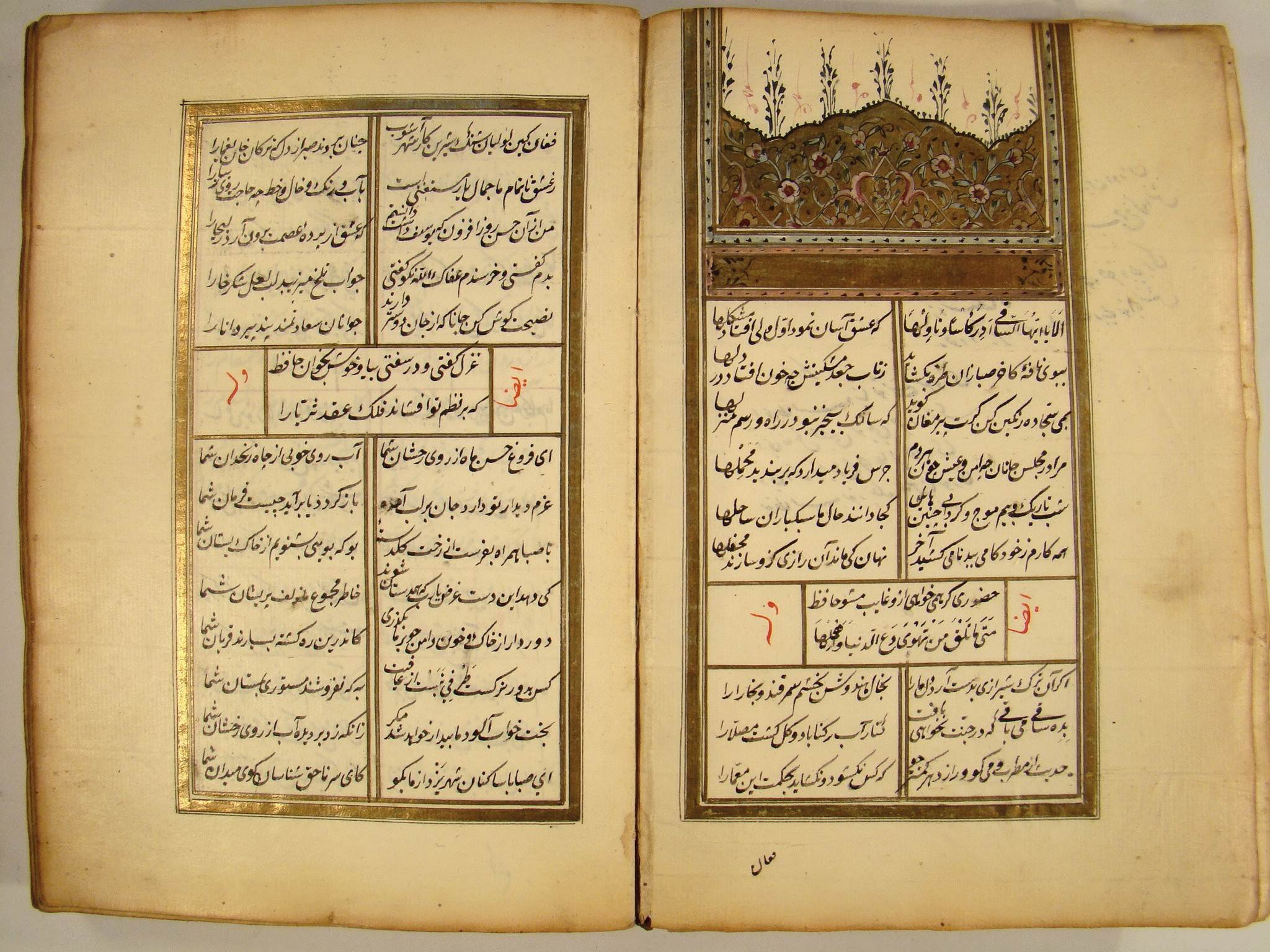
A GLANCE AT THE MANUSCRIPTS OF THE DIVAN OF HAFEZ IN GAZI HUSREV-BEG LIBRARY
Shamseddin Hafez Shirazi (died in 792 Hijri year/1389–90 A.D.) is one of the greatest names of classical Persian literature, whose ghazals have become popular both in the East and in the West.
-
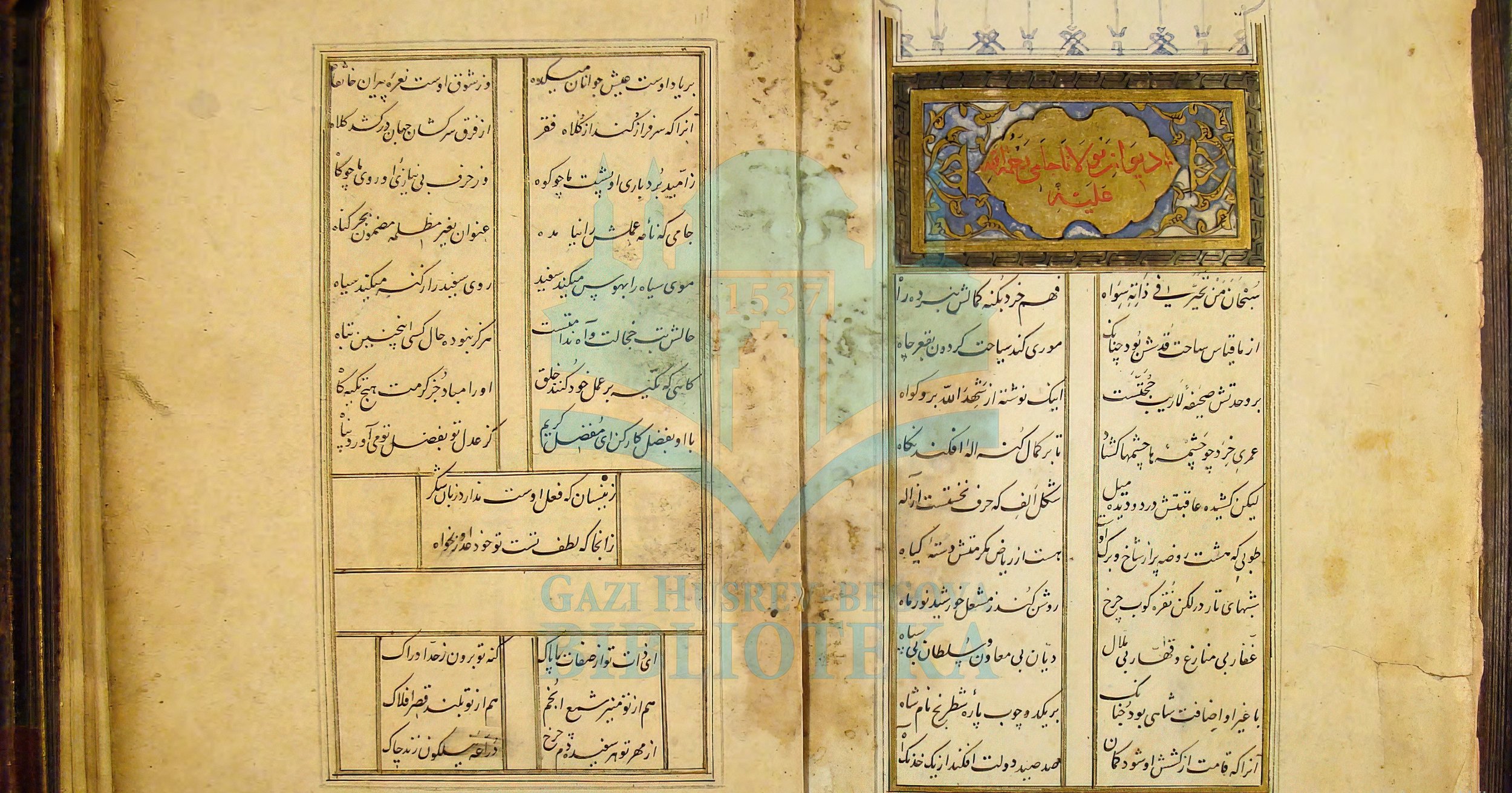
MANUSCRIPTS OF PERSIAN POETS IN BOSNIA
Gazi Husrev-beg Library in Sarajevo is the most significant treasury which stores manuscripts in Oriental languages important for studying the cultural history of Bosnia and Herzegovina.
-
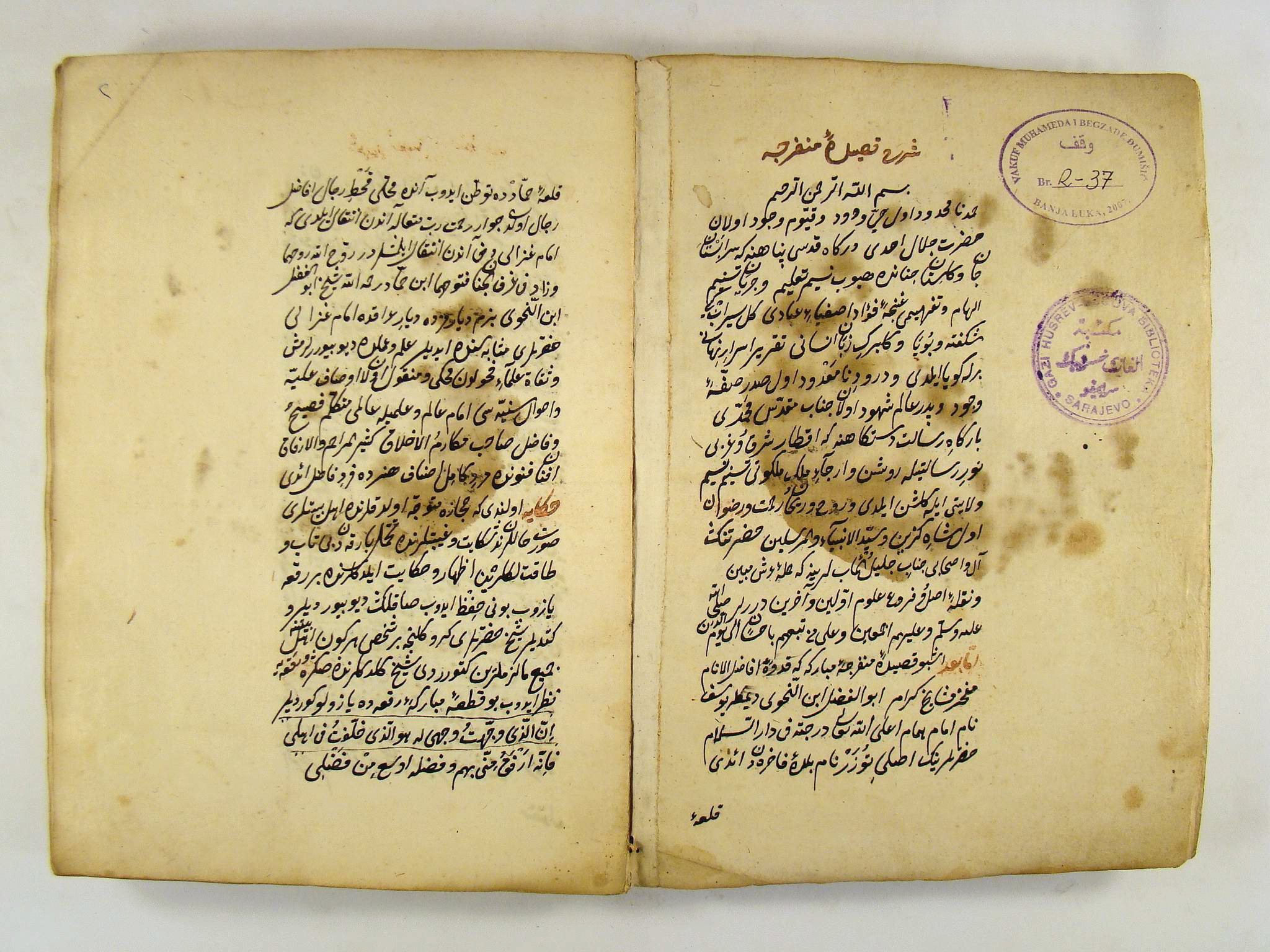
LIBRARY OF THE ĐUMIŠIĆ FAMILY FROM BANJA LUKA
Attitude toward the cultural heritage of a nation is a measure of their awareness of the origin, tradition and their own cultural values.
-
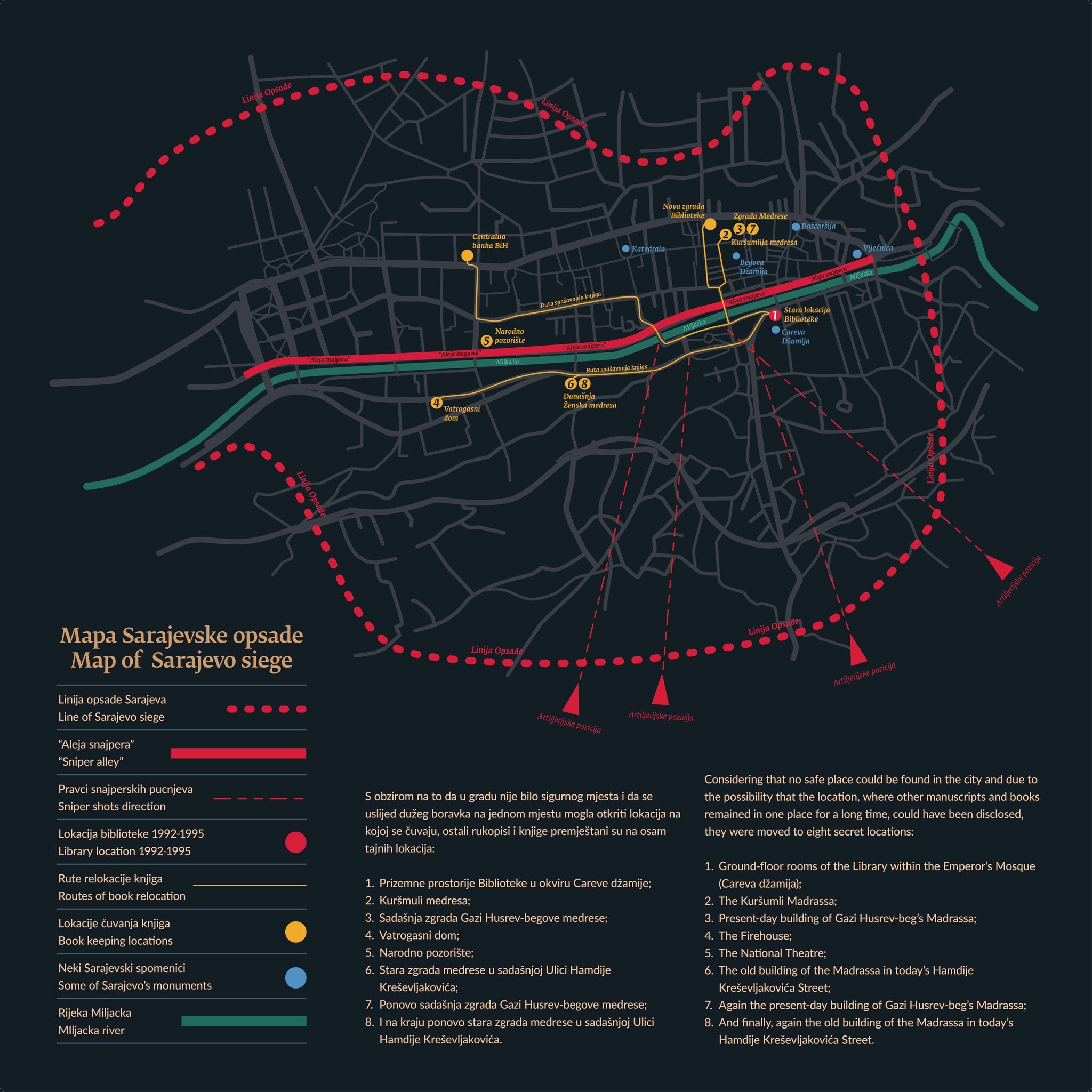
SHINING EXAMPLES OF PRESERVING WRITTEN HERITAGE
In April 1941, when German troops bombed Sarajevo, a fire broke out in the courtyard of the Imperial Mosque, where the Gazi Husrev-beg Library was situated.
-

FROM HASANAGINICA TO PARRY'S COLLECTION
When Alberto Fortis, 1774, wrote down the original and then translated into Italian the Xalostna pjesanca plemenite Asan-Aghinize he did not even imagine what consequences it would have in the European, South Slavic and Bosnian cultural space.
-

ABDULAH -EF. KANTAMIRI-ZADE, A POET, WAQIF, MUDARRIS AND CALLIGRAPHER FROM SARAJEVO
Throughout its history, Sarajevo has had individuals whose uniqueness, creative talent or rich legacy marked the time they lived in.
-
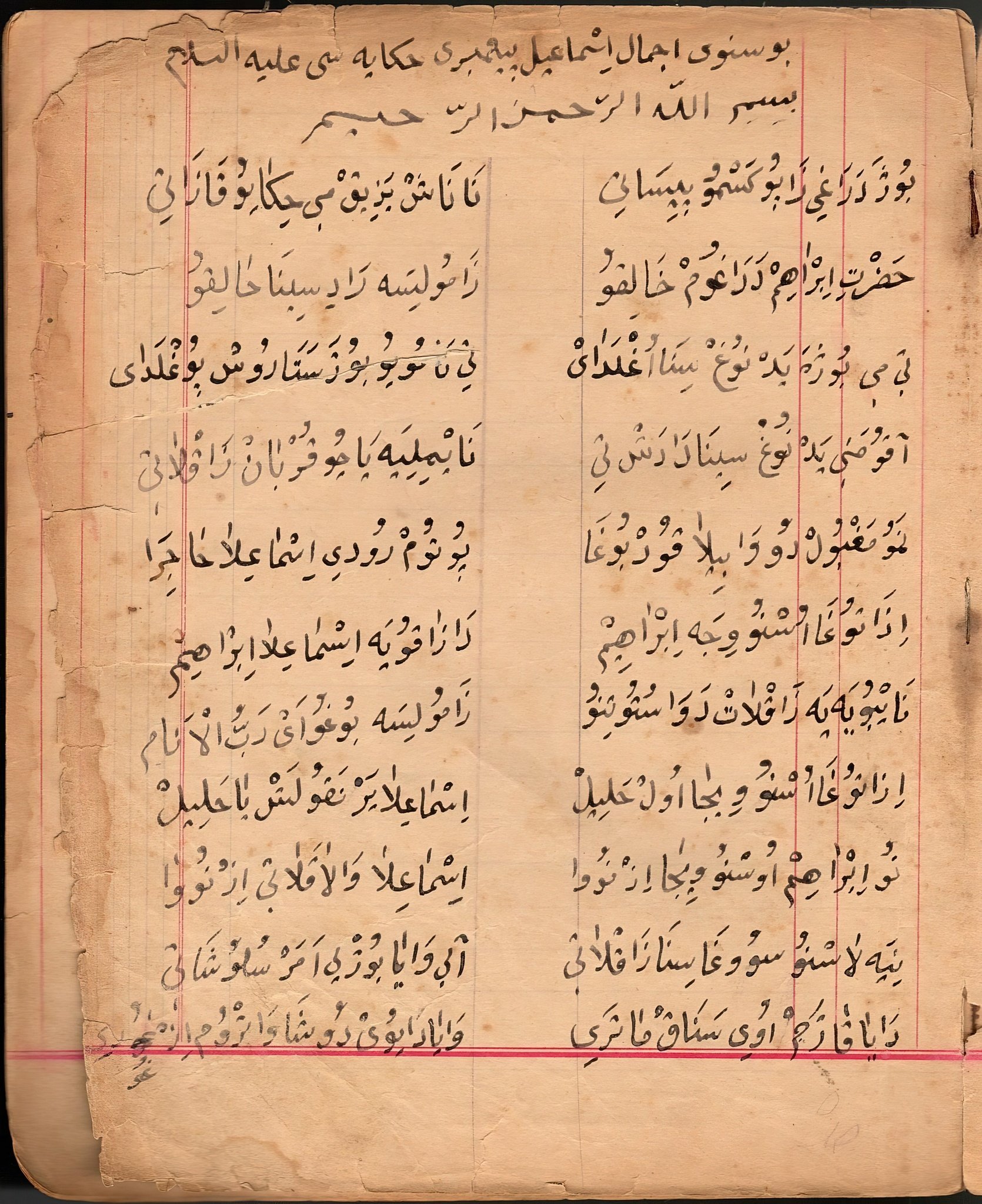
THE MOST PRODUCTIVE BOSNEVI (ALJAMIADO) AUTHOR
Muharem Dizdarević, a.k.a. Muhamed Rušdi, is a Bosnevi (aljamiado) author from the late 19th and early 20th century.
-

HAFIZ IBRAHIM ŠEHOVIČ - A BOSNIAK WHO TRANSCRIBED THE QUR'AN 66 TIMES
The tradition of transcribing the Mus'haf (Qur'an) in Bosnia and Herzegovina is inseparable from the arrival of Ottomans and Islam in these regions.
-

LITERARY DUO OSMAN-AZIZ – A PHENOMENON OF EUROPEAN LITERATURE
In the history of world literature, it does not often happen that two prominent writers shape and write their literary works together. In all variants of Yugoslav literary creations, such an undertaking was fairly successfully done by two Mostar citizens – Osman Nuri Hadžić and Ivan Milićević, using the pen name Osman-Aziz.
-
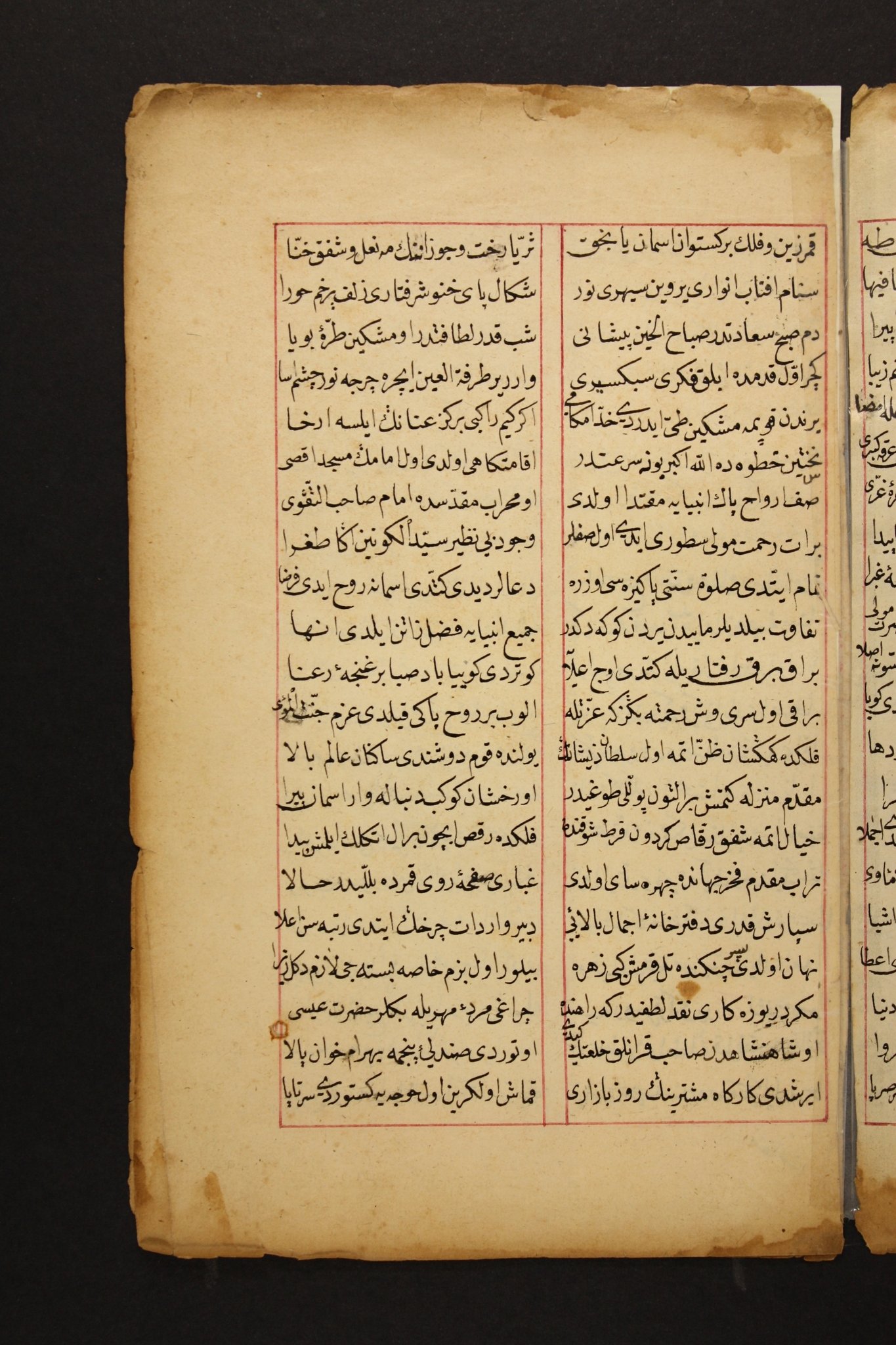
ALAUDIN SABIT UŽIČANIN
Sabit Užičanin (Užice, 1650 – Istanbul, 1712) was certainly one of the most significant, if not the most significant, of all our Diwan poets, though he is also important as a tasawwuf poet since his poetic expression differs greatly in terms of spirit. What gives a distinctive feature to Sabit's works is the original style and language, unburdened with the multitude of symbols – which are the basic characteristics of tasawwuf poetry.
-

REFLECTION OF SUFI IDEAS AND MOTIFS IN ALJAMIADO AND RECENT LITERATURE
Influence of Sufi ideas on the poetry of Bosniaks has not been limited to a single period in history or to a single stream of literary activities of Bosniaks, i.e. to literature in Oriental languages. Influence of these ideas and motifs also encompassed folk literature (Aljamiado) and is visible in recent literature; for instance, it is discerned in some poems by Safvet-bey Bašagić, Musa Ćazim Ćatić, even by our contemporaries.
-

MIRZA ABDURAHMAN (MILIVOJ) MALIĆ (1897-1935)
Mirza Abdurahman M. Malić is one of outstanding Iranists from the South Slavic region from the first half of the 20th century, who presented the literary and spiritual heritage of Bosniaks to the West.
-
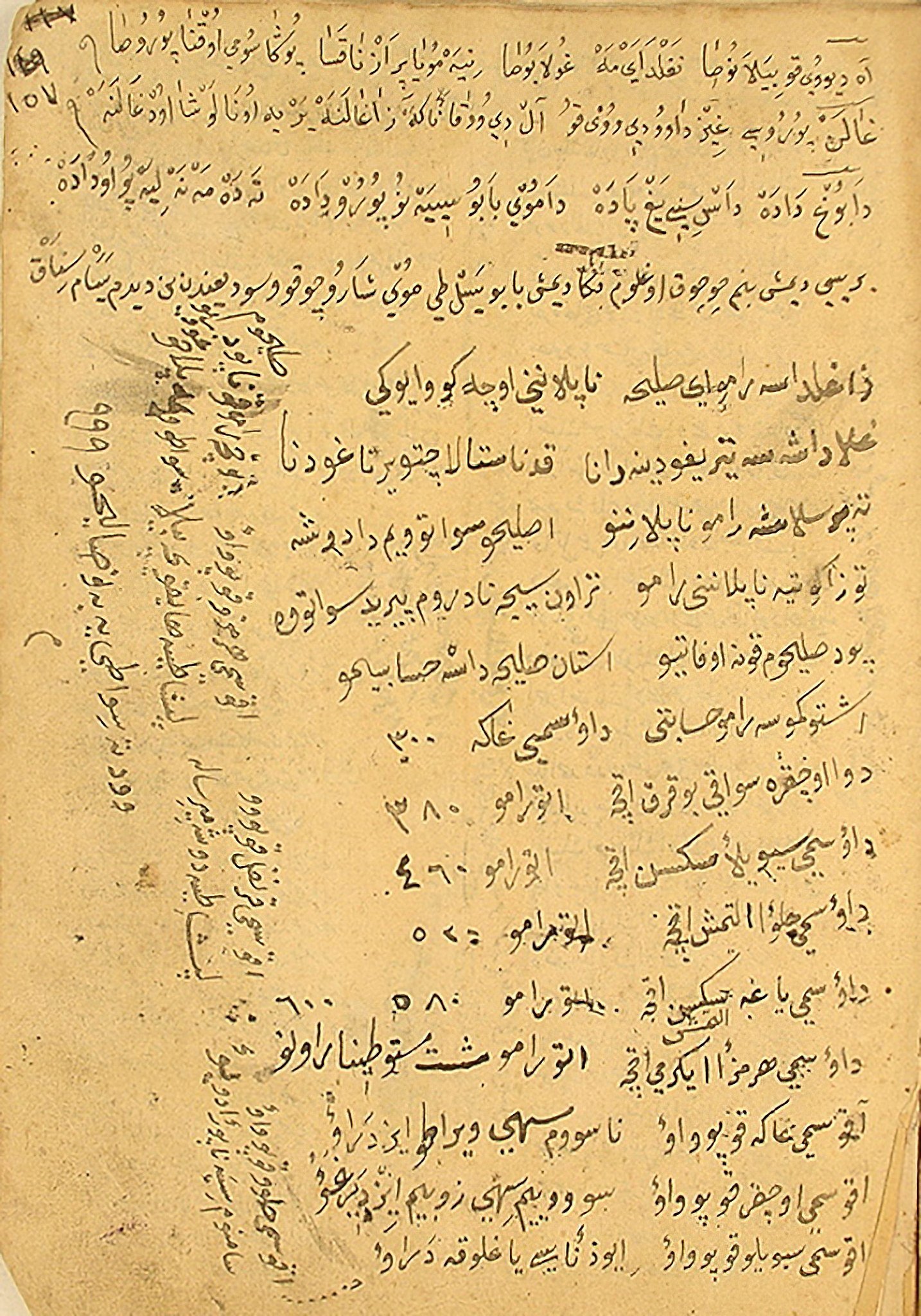
MULA MUSTAFA BAŠESKIJA: AN EPIC POETIC CHRONICLER OF HIS TIME
History of Sarajevo would hardly be adequately understood if the diachrony of the city had not included a truly valuable and unique cultural personality of the city who, in a continuity longer than half a century, recorded all major cultural-historical, socio-political and other circumstances of daily life in the center of Bosnia of his time and of this time. Mula Mustafa Bašeskija!
